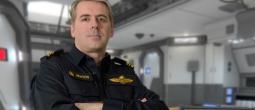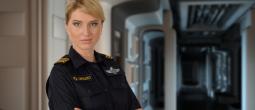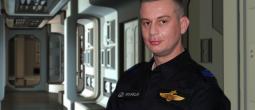
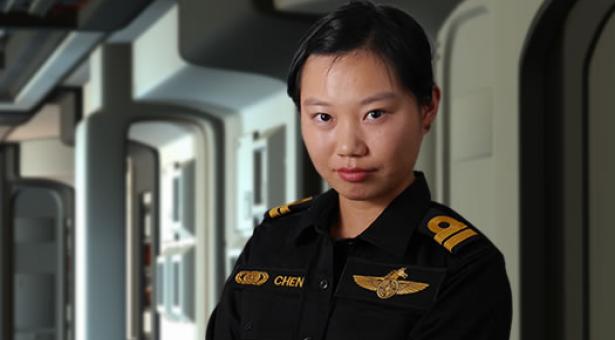
Lieutenant Amelia Chen is an astrophysics officer. She co-ordinates the teams that scan and analyse vessels, objects and phenomena that Endeavour encounters in space. It’s her responsibility to ensure that as much as possible is discovered and passed on to the Conn during such encounters to ensure the safety of the ship and the success of the mission.
Amelia is a military officer, having come to the ISDC from the Chinese military’s space program, but an astrophysics officer might just as easily come from a civilian background and join up as a warrant officer.
What Would I Be Doing?
Interested in Amelia’s role as an astrophysics officer?
Once you've completed training at the Academy you'll be able to gain more experience by joining simulator missions chosen from a growing library of tactical, exploratory, scientific and diplomatic scenarios.
As science officer on these missions you'll need to be ready to explain the unexpected or the unusual to the rest of the crew so that they can log a new discovery, make first contact or prepare to defend the vessel. While you may be supported by specialists from other scientific disciplines, as the officer on the bridge you are ultimately responsible getting the Conn the information they need.
Tactical Analysis
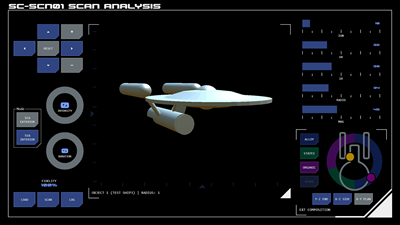 The tactical team can spot and track other objects such as vessels in space, but only the science officer can scan and visualise those vessels. The science officer would provide analysis of a vessel’s configuration including whether it had been encountered before and provide guidance on its behaviour, including warning of possible hostile action.
The tactical team can spot and track other objects such as vessels in space, but only the science officer can scan and visualise those vessels. The science officer would provide analysis of a vessel’s configuration including whether it had been encountered before and provide guidance on its behaviour, including warning of possible hostile action.
Scientific Analysis
Not everything encountered in space is necessarily a ship or even artificially constructed. A science officer needs to analyse an unknown object or phenomenon quickly and provide guidance to the Conn on how to deal with it.
In some cases this may involve determining whether the object or phenomenon is trying to communicate and how to respond. Once channels of communication were opened, an exolinguist would assist with interpreting the message.
Becoming an Astrophysics Officer
Science officers are specialists and so are more focused on their area of expertise than regular line officers, although they may still be expected to manage teams. As well as training on Endeavour’s sensor and analysis systems, science officers also bring with them the knowledge gained from their scientific study and research.
As specialists, science officers can follow either an officer or warrant officer career track, usually depending on where they studied – at a military academy or a university.
First Steps
It starts by signing up as a cadet or candidate (depending on the career track chosen).
You’ll be asked to choose a relevant ship system to train on. When you successfully complete the training course you’ll be qualified (or ‘rated’) to operate that system on missions. You’ll also be promoted.
Tip
Systems training will only take you so far. You’ll need to draw on your study and research in a wide range of areas including current and theoretical propulsion, weapons and communications systems, field, quantum and gravitational mechanics, the behaviour of astronomical bodies and phenomenon… to name just some.
Gaining Experience
Endeavour’s mission offers a unique opportunity for scientists to move beyond theory as the ship encounters vessels, objects and phenomena, applying their knowledge to each new discovery.
As you participate in missions your experience will be logged and will be recognised as a step up in rank.
Training on additional ship systems will also help your advancement and widen the range of missions you can participate in.
Advanced system training will help you advance to the highest ranks.
Command
The ISDC does not have any policy against specialist officers assuming command positions.
Once you reach the rank of lieutenant or warrant officer, you’ll be able to start logging watch hours - a class of experience gained when in command of a mission. This type of experience gains you access to command training and a coveted command rating.
Not Sure?
Choosing your first rating doesn’t lock you into any particular career track or role. Choose something that interests you so that you can try simulator missions and get a feel for what you enjoy most.
There are no barriers to changing career tracks at any time. Your accumulated experience and ratings are fully transferable.


